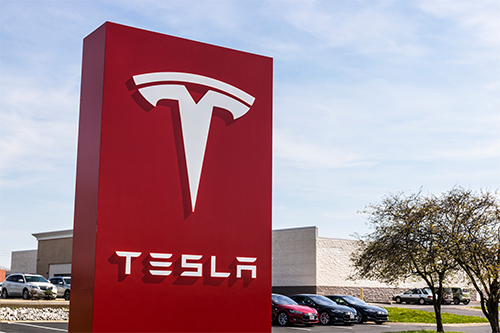 |
| Can Tesla (TSLA) benefit from its insurance business? | Gadgets 36T |
For most
investors, Tesla, Inc. (TSLA) electric vehicle sales are the focus of the
company's balance sheet. But if CEO Elon Musk is to be believed, other parts of
Tesla's business could account for a significant portion of its profits. During
an October 2020 earnings call, Musk hinted that the company's insurance
business, which it launched the previous year, could account for 30% to 40% of
the total future value of its auto business.
With Tesla's
current valuation of over $1 trillion, that means the insurance business could
be worth between $300 billion and $400 billion in the years to come. To put
these numbers in context, the high end of this estimate is twice the combined
valuations of Tesla's competitors, Ford Motor Company (F) and General Motors
Company.
Tesla's Auto
Insurance Company
Valued at
$288.4 billion and growing at a compound annual rate of 2.7% over the past five
years, auto insurance is an attractive industry. Tesla began operations in
California in 2019 as a broker for policies written by the State National
Insurance Company. The company has since expanded to introduce a similar
product in Texas and Illinois. Tesla has also applied to offer insurance
coverage to customers in Washington and established an insurance brokerage firm
in China in August 2020.
Besides
generating revenue for its business, providing auto insurance to customers
helps the electric car maker solve two problems at once.
First, it
reduces the overall cost of Tesla vehicle insurance. A 2018 USA Today poll
named the Tesla Model Is the most expensive car for auto insurance. The insurance
costs for Tesla's production vehicle Model 3 are also above the industry
average.
Second, and
related to the first, Tesla's insurance business could also increase sales of
its automobiles by lowering the total cost of ownership. The company has promised
discounts on monthly premiums based on a driver's "safety rating".
Scores are calculated based on "real-time driving behavior";
Monitoring that monitors actions such as aggressive cornering, hard braking,
and dangerous distances. For example, drivers with an “average” security rating
save between 20% and 40% on their insurance, while those with the highest
security rating can save between 30% and 60%.
Driver
Performance Monitor also serves another purpose for the automaker. According to
CEO Musk, this allows for a "much better feedback loop" linking
manufacturing processes to car design, meaning the company can make changes to
the car's design based on data it collects about driver behavior. Pitchbook
Mobility analyst Robert Le says Tesla has "full access to data" on
vehicle features like battery levels, autopilot and car lights.
Of course, the
concept of usage-based insurance or UBI is not new. Insurance companies such as
The Allstate Corporation (ALL) already offer similar products. Other automakers
like GM and BMW have their own usage-based insurance versions that offer
discounts off standard rates and are much larger than Tesla's offering.
These systems
typically install a device in vehicles that evaluates driving behavior over a
period of time. Discounts are offered based on reviews completed during the
review period, credit, and vehicle type. Tesla, on the other hand, says its
insurance product doesn't take age, gender, or driving history into account.
Can Tesla make
a profit from its insurance business? Tesla's
insurance
business shouldn't pose a significant threat to the incumbents, at least
initially. According to Tom Super, vice president of intelligence at JD Power,
Tesla's entry will have "little impact on the average auto insurance
consumer, including the premiums they pay.""
More importantly,
the success of Tesla's insurance business depends on sales of its cars. This
statement is not surprising. The auto insurance industry operates on low
margins, and scale is key to making a profit with the business. The
electric-car maker lags its more established rivals by a significant sales
margin. In 2021, Tesla sold 936,172 vehicles and GM 2.2 million cars in the same
period.
Preliminary
reviews of Tesla's insurance product should also raise concerns. Although
investors have given the product a boost by increasing the share price,
customers are finding it harder to sell. Immediately after launch, Tesla's
insurance registration page crashed, prompting complaints from people trying to
sign up. Commenters on Reddit said their Tesla-estimated rates were higher than
what other insurers were already paying to incumbent insurance companies. It's also
a given that the company's driver monitoring systems used for fully autonomous
driving (FSD) and Autopilot are still a work in progress. A Consumer Reports
test last year found that GM's cruise control systems monitored drivers better
than those offered by Tesla.
But Tesla's
vertically integrated supply chain could give it a long-term advantage in the
insurance industry. The high cost of insuring its cars is a function of their
cost of production. These costs are falling rapidly, which is reflected in the
company's growing operating profits. Tesla's insurance product also speeds up
the claims process by providing a direct link to the manufacturer and making it
easier for vehicle owners to schedule maintenance and repairs. This can lead to
a blocking effect. As car sales increase in the coming years, Tesla owners will
likely prefer the insurance the company offers.
But that is in
the future. Consumption-based insurance is relatively uncharted territory.
According to the National Association of Insurance Commissioners, there is a
great deal of uncertainty in the selection and interpretation of UBI driving data
and in setting premium rates based on that data. However, analysts are bullish
on Tesla insurance. According to Morningstar's Seth Goldstein, the insurance
industry will generate the bulk of revenue and all future profits from services
and other segments.






